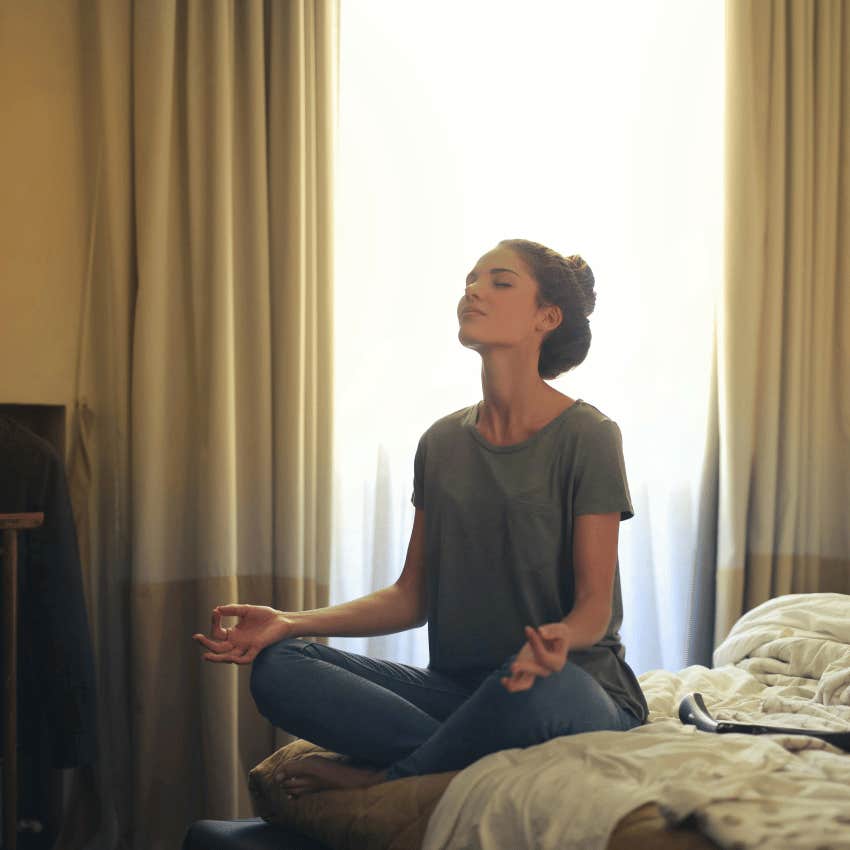15 Cheat Codes That Give You An Unfair Brain Advantage, According To Psychology
Position yourself in a place of knowledge with these tricks.
 Spencer Selover | Pexels
Spencer Selover | Pexels Most of us are 97% blind — we just don’t realize it. We don’t need to necessarily do anything clever or ground-breaking to gain a real unfair advantage. We need to do what most do not. And what most do not do, is less.
Here are 15 cheat codes that give you an unfair brain advantage, according to psychology:
1. Cultivate the art of using all your senses
Listen deeply, for example, and you will be outward-focused, more relaxed, and see things beyond people’s words.
2. Before creating anything, meditate for three minutes
Most people get blocked because they are resisting the creative process itself. Meditating — even a short one — loosens the mind and diminishes resistance, making you instantly more creative.
3. Realize worrying does nothing for the sense of control you believe it gives you
According to research from the American Psychological Association, the perception of being in control is essential for both psychological and physical health. The lens of Ellen Langer’s conception of mindfulness, which is based on the simple act of noticing new things and flexibly responding to changes in context, is the most effective.
Specifically, researchers have drawn a parallel between mindfulness and perceived control that may allow new clinical tools derived from the former to improve the latter. By incorporating an understanding of mindlessness and mindfulness into their practices, clinicians can increase perceived control for their clients and themselves.
 Andrea Piacquadio | Pexels
Andrea Piacquadio | Pexels
4. Prioritize enjoyment over grinding
You miss things when you add pressure to your process. Anything can be enjoyed (pretty much) — it just requires that we allow for the possibility of this.
Wash the dishes with joy. Write your article in a way that entertains you. This opens up your curiosity and creativity pathways, which, funnily enough, will help you do far better.
5. Understand that all your problems are rooted in your resistance to life
When we allow ourselves to let go, suddenly clarity returns, and we seem to accelerate in luck status.
6. Do the right things more often
In other words, be consistent and then some. When we continually show up with a handful of habits, regardless of how we feel, we can’t help but see things from new angles over and over again. This develops the feel you have for things, whether it’s writing, public speaking, or woodworking. It gives you an advantage few will ever experience.
7. Regularly explore new geographies
When we leave our usual environments, our brains need to assimilate new information from new places and new challenges. This keeps the mind sharp and aware.
8. Realizing that external things do not determine your emotions
They do not. Your thoughts determine your emotions. When you understand that you create from the inside out, seemingly stressful occurrences diminish in their power over you, and you will see things for what they are.
9. Looking calmly and directly at the thing we fear
New research into the extinction of learned fear shows that facing fear upfront in closely spaced doses may work better than facing it slowly over time. The study underscored one key to efficiency. In it, both short-term and long-term fear extinction was greater with "temporally massed" presentations of the stimulus.
 Joshua Aucoin | Shutterstock
Joshua Aucoin | Shutterstock
10. Refusing to play in a world of illusions
Far better to play in lucid reality. This requires we frequently pause, breathe, and look at what is happening.
11. Staying in the present moment
According to research, baseline dispositional mindfulness and perceived ability to savor the moment interacted to predict mean positive emotion levels over the reporting period and, in turn, persisting changes in psychological health. Specifically, the relation between the perceived ability to savor the moment and positive emotions and, in turn, continuing change in psychological health indicators was amplified at greater levels of mindfulness and fell to non-significance at lower levels of mindfulness.
12. Knowing our personality is malleable
Understand that, although we have preferences that we lean towards, ‘personality’ is far more malleable than most think. We are not trapped by the personalities we have entombed for ourselves since youth. How we think about ourselves can shift. And this starts by knowing it’s possible and taking a step towards a new perspective.
13. Slowing down physically, especially when agitated or anxious
Slowing down like this eases our tension instantly and helps us see things we will have missed when in the throes of worry.
14. Focusing on making other people’s lives easier, even if you’re not in the best mood
When we’re self-conscious and wish things were different in our own lives, we turn our attention inward. This puts us in a vulnerable and self-absorbed position, which closes us off from presence and joy.
15. Introducing more play into your day-to-day
What does this mean? At its core, it’s about being okay with uncertainty. Most adults have lost that free experience of life we once had as children, when we were more present and not so lost in future possibilities and concerns.
To bring in more play means being open to flow. To say yes to the next thing. To improvise and find that hidden enthusiasm for handling whatever life throws you.
Alex Mathers is a writer and coach who helps you build a money-making personal brand with your knowledge and skills while staying mentally resilient.

